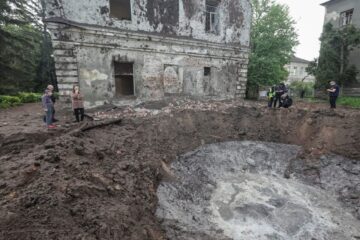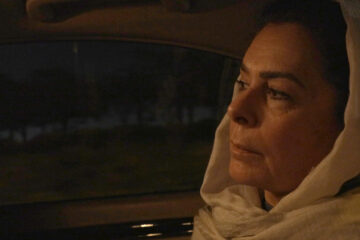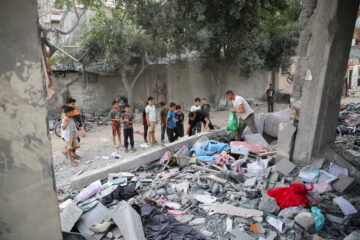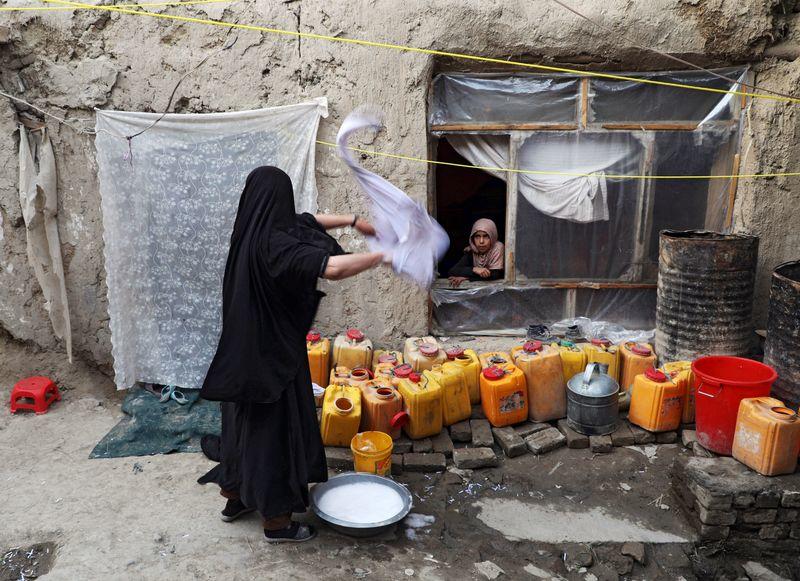Thailand under nationwide curfew after army seizes power in coup
Thailand\’s military coup leaders suspended the nation\’s constitution and ordered the country\’s acting prime minister and cabinet to report to the army on Thursday, two days after the army chief imposed martial law. Thailand’s army chief, Gen. Prayuth Chan-Ocha, flanked by the heads of the armed forces, appeared on all major television stations late Thursday afternoon and declared the military and police are now running the kingdom’s government. Prayuth said it is necessary for the military and police to “take control of governing the country.” He said the army will restore order and push through political reform. Following the announcement, soldiers moved in to clear the two main protest sites where both pro- and anti-government demonstrators have held rallies in recent days. They dispersed crowds and detained several leaders.
A nationwide curfew has been imposed in Thailand after the country\’s military seized power by dissolving the government and suspending the constitution.
General Prayut Chan-Ocha, the army chief, announced on Thursday that a military commission that had imposed martial law a day earlier would take control of the country\’s government. He later declared himself the country\’s prime minister.
The nationwide 10pm – 5am curfew was immediately put into effect.
Key political figures have been detained and others ordered to report to the military.
The army said it needed to restore order and enact political reforms.
It declared martial law on Tuesday but then gathered political leaders together for talks on the crisis.
However, army chief Gen Prayuth Chan-ocha went on air on Thursday to announce the coup.
Several key figures at the talks, including opposition protest leader Suthep Thaugsuban and pro-government protest leader Jatuporn Prompan, were detained.
Acting PM Niwatthamrong Boonsongphaisan was not at the talks and his whereabouts are unclear. However, he and all cabinet ministers, along with ex-PM Yingluck Shinawatra, were ordered to report to the military.
Hundreds of troops surrounded the venue of the talks from where Suthep Thaugsuban, who led more than six months of anti-government protests, was taken away.
Hundreds of troops blocked cars from getting within 2km (1.2 miles) of the site – which was left eerily quiet as protesters packed up.
One of them, Eungkan, told Reuters news agency: "The troops came, the leaders left. We weren\’t scared. This coup will not help anyone; it won\’t help this country."
Reuters also quoted Phuttiphong Khamhaengphon, a red shirt leader from the north-eastern town of Khon Kaen as saying: "We are completely in the dark. We haven\’t had any orders or coordination yet."
Anti-government protesters were also seen packing up in central Bangkok.
Thailand\’s army also told all television and radio stations in the country to halt normal programs on Thursday and only broadcast army material, according to Reuters.
“All radio and television stations, satellite and cable, must stop normal programming and broadcast army content until told otherwise,” Winthai Suvaree, a deputy army spokesman, said in a televised statement.
Foreign broadcasters and Internet service appeared unaffected.
Anti-government demonstrators have rallied in Bangkok for six months. During that time, at least 28 people have died and more than 700 have been injured in violence connected to political protests.
The roots of the political standoff go back years.
On one side, royalists and allied groups sought to rid the country of the influence of billionaire Thaksin, whose parties and candidates have won every election since 2001.
Thaksin was ousted as prime minister in a 2006 military coup that sparked a major power struggle. He now lives in self-imposed exile to avoid a prison sentence for a corruption conviction. He and his supporters call the charges political motivated.
Thailand\’s army, which has been traditionally on the side of the opposition, has staged 11 coups in the last 80 years.
"Thailand is extremely polarized. The military is not neutral. It does favor the monarchy and this now could lead to resistance to military rule. It\’s like a déjà vu all over again 2006," said Carl Thayer, a professor of politics from the University of New South Wales in Australia.
The military coup in 2006 led to changes in the country’s constitution that were intended to set up a more stable political system.
This is the country\’s 12th coup since the absolute monarchy ended in 1932. There had been 19 attempted coups as well in the period.
Source: Agencies
[do_widget_area inner_adsbar]










